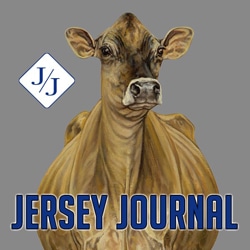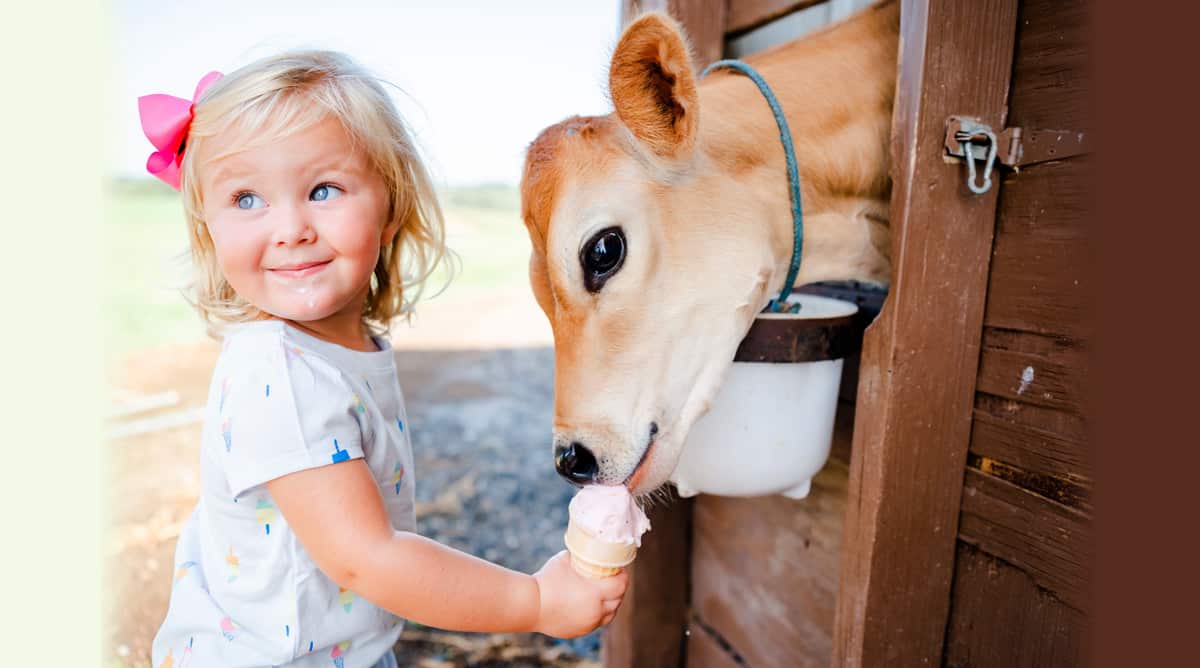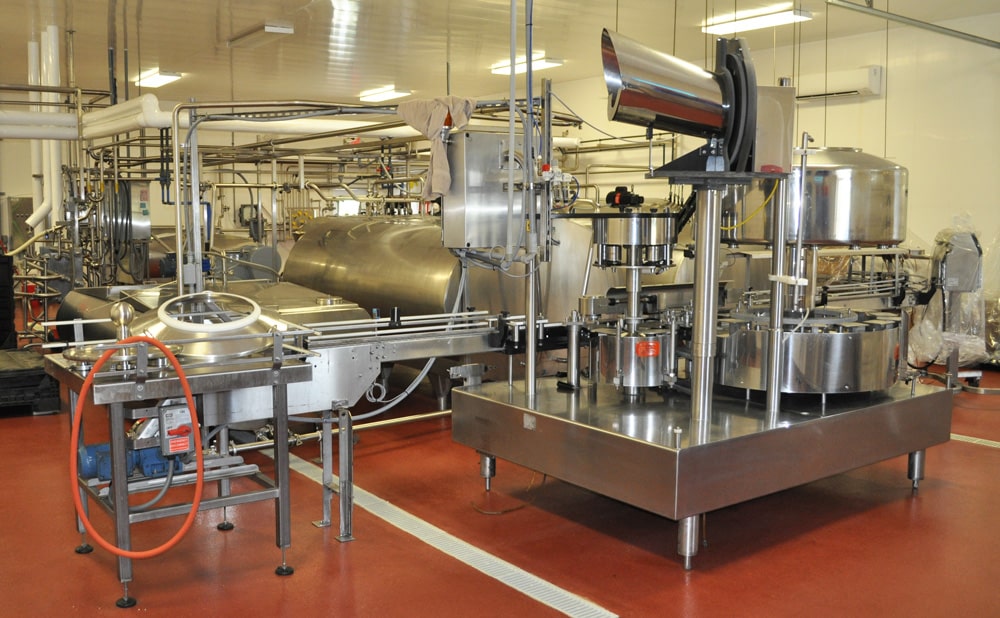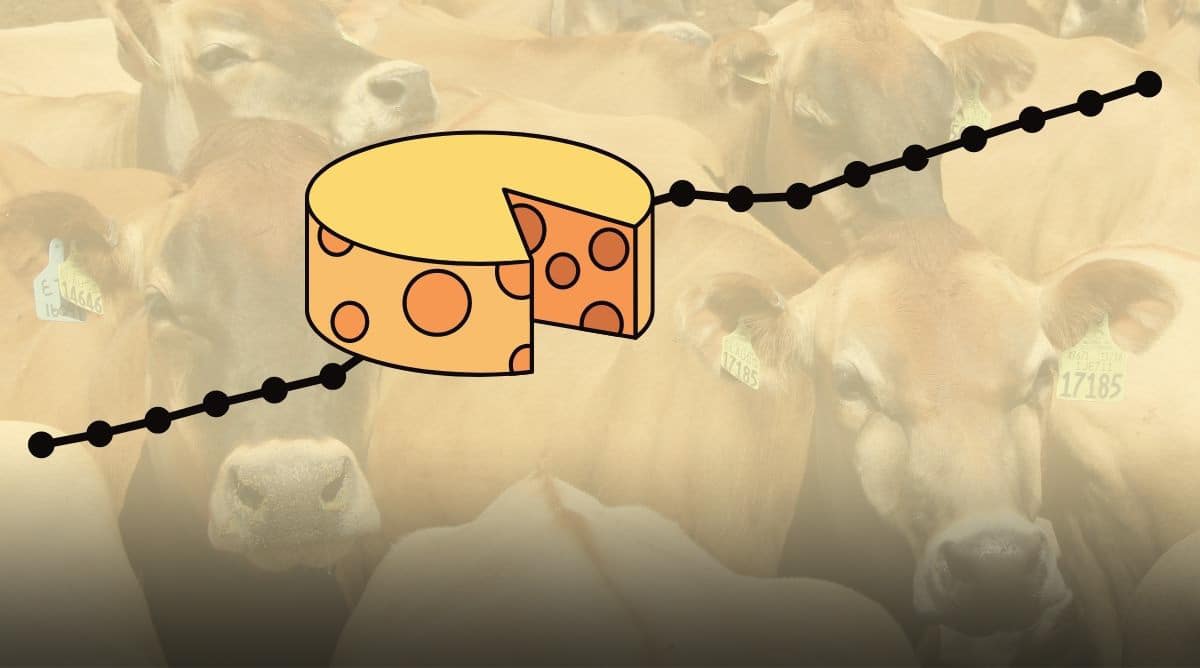Dreams Become Reality for Lutzes of Piedmont Jersey Farm
You’ve been thinking about this business for years. You’ve done your research, laid the foundation and launched. So, what does that dream look like a year after you set it afloat?
For North Carolina Jersey breeders Corey and Bridgette Lutz, the notion of processing milk from their Registered Jersey herd was a “someday” dream that rarely got more than passing thought. But when their son, James, returned to the farm in 2012 and their daughter, Olivia, expressed interest in coming home too, the Lutzes needed to generate more income to make that happen. And because expanding the business with additional acres and cows was not an option, the someday fantasy got some serious consideration.
They fleshed out their idea and established Riverbend Creamery, an on-site creamery for bottling milk and churning ice cream, at Piedmont Jersey Farm in Lincolnton. They built the creamery from scratch, furnished it with used equipment, found a niche market, created a line of amazing products, and sold their first goods in August 2021. They survived the stressful early years of entrepreneurship and are working through details of scaling and infrastructure.
What have they learned? Everyone’s business plan is unique, so you cannot replicate someone else’s plan and expect it to work for you. All plans will change, and nothing goes as expected. Surround yourself with capable people. Have conversations about everything with everyone on board, even if they are difficult. Work hard, but also take time for mental health breaks.
And finally, enjoy the process as it may prove to be the most challenging, fulfilling, and rewarding experience of your life.
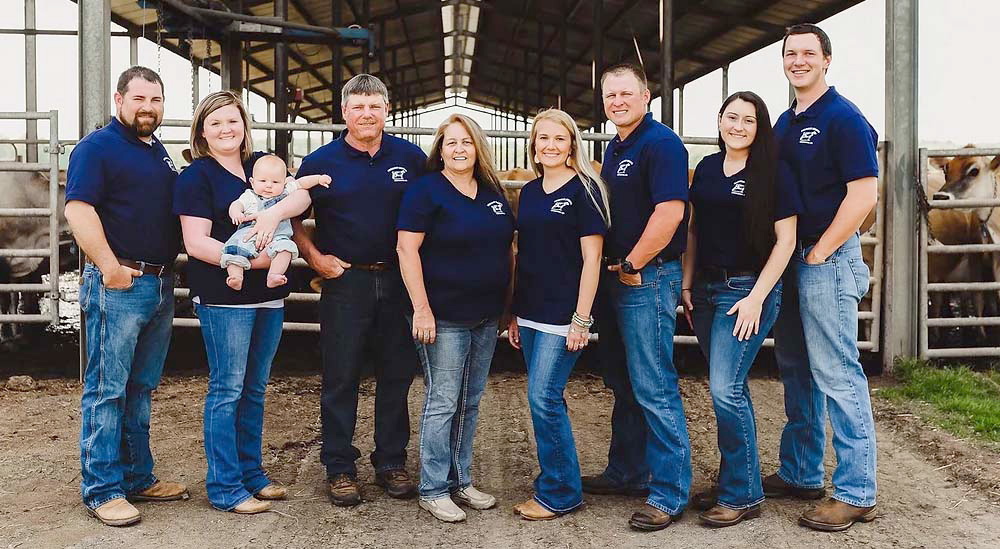
In the Beginning
Long before the creamery, and even before the children, came the cows. Corey grew up in Catawba County with his parents and siblings on the home Jersey dairy farm, also named Piedmont, established by his grandparents. He earned an animal science degree from North Carolina State University (NC State) in 1982 and moved his cattle to his own farm in Lincolnton in 1997.
To maximize profits from the region’s lush grass, hilly terrain, and long growing season, Corey has rotationally grazed cows and housed them on pasture for decades. The practice allows him to milk more cows per acre, maintain healthy soil and water, and invest less in growing and harvesting equipment, feed storage and housing. Piedmont Jersey Farm has perfected the practice and become a resource for intensive grazers around the world. The Lutzes were named conservation farm family of the year by the state’s soil and water conservation district in 2001. They hosted the Intercollegiate Dairy Challenge in 2011 and a virtual tour for World Dairy Expo in 2017.
The Lutzes have also developed a well-respected cattle marketing business, selling 60-100 replacement animals privately and through state and national consignment sales each year.
It was this sound financial footing that provided the family a foundation on which to build a new business venture. To get an overall perspective on milk processing, Corey attended the value-added seminars hosted by National All-Jersey Inc. in 2017 and 2018 and similar events conducted by NC State. The Lutzes also hired a consultant to help them evaluate options, calculate returns, and navigate the waters for grants.
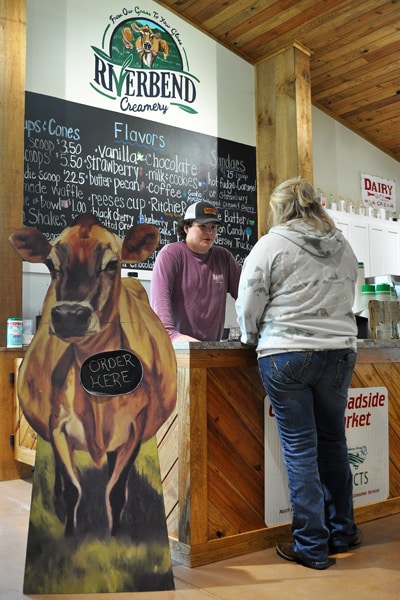
To see these approaches applied on the farm, Corey and Bridgette visited several dairies processing their own milk in North Carolina, Ohio, and Pennsylvania. The Lutzes forged a special relationship with a Jersey dairy close to home, Simply Natural Creamery, operated by Neal Moye and his family in Ayden, N.C.
“We could have not started our creamery without help from other processors like Simply Natural Creamery,” said James. “They have helped us build this place literally from the ground up. With them, we brainstormed ideas and troubleshot problems. Their pasteurization guru, Kenny Jones, spent several days here teaching me the ins and outs of using our equipment.”
“Our friendship continues beyond launch. Nearly every week, I talk to Kenny to pick his brain about something and catch up with his life.”
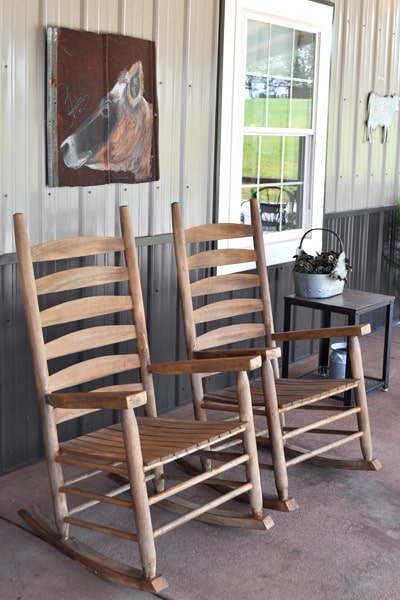
The Lutzes initially considered everything, from cheese to cream line milk, to find a product that would work in their setup, noted Corey. “Though a lot of our peers make cheese, and it can be accomplished with just a vat and pasteurizer, I have never been passionate about cheese. And if I am going to do this, I need to be passionate about it.”
Riverbend Creamery eventually settled on homogenized fluid milk products and a passion not just for Corey, but all of America it seems, ice cream, the country’s favorite dessert according to Yahoo Food. The market for Riverbend Creamery is within an 80-mile radius of the farm and includes the cities of Charlotte and Gastonia and the region surrounding man-made Lake Norman. The creamery is named for the South Fork Catawba River, which bounds the farm on three sides. The logo includes the tagline: from our grass to your glass.
Super premium ice cream (16% butterfat) is churned in 25 different flavors and sold primarily through the farm store as hand-dipped cones and quarts and pints. A new wholesale market for Riverbend Creamery are gas stations that hand dip cones as well.
The fluid line for Riverbend Creamery includes whole, lowfat and skim milk, chocolate milk, half and half, and heavy cream. Product is sold to consumers at the farm store, coffee shops, convenience stores and grocery stores, including Food Lion and IGA.
A seasonal product, eggnog, was a big hit last year. This year, the Lutzes plan to be better prepared, with production beginning in October so they can meet the requests of customers who often told them, “This is the best eggnog I have ever had.”
The revenue generated from fluid milk products and ice cream is nearly equal. Riverbend Creamery may soon process butter as well to equalize production and capitalize on the high levels of fat in Jersey milk. During processing, fat is initially skimmed to create a base and then reintroduced in varying levels depending on the final product. With herd fat tests hovering around 4.6% in the winter and 4.4% in the summer and consumer appetites fluctuating seasonally too, butter is an ideal means of storing excess butterfat. Another bonus: demand is now high and supply short for a product that has been the bane of the industry over the past several decades.
The Lutzes considered, but passed on, processing cream line milk, which comes with unhomogenized milk. “Though Jersey milk is a natural for this, we felt this niche required too much education for our customers,” said Corey. “The consumer who appreciates a cream line disappeared generations ago. As well, it is challenging to make ice cream from unhomogenized milk.”
At Riverbend Creamery, milk is pasteurized using the high-temperature, short-time (HTST) method and bottled in plastic containers. The process is more energy efficient than vat or batch pasteurization and produces a tastier product.
The creamery processes milk 2-3 days per week using about 25% of the milk produced by the Piedmont Jerseys herd. The balance of the milk produced by the herd is sold to Appalachian Dairy Farmers Cooperative. The creamery has two bulk tanks, one designated for milk used by the creamery and the other for milk sold to the co-op. The second tank gives the Lutzes the ability to hold back milk to be used for processing.
“Developing Riverbend Creamery has been feasible only because our milk cooperative has been willing to work with us,” commented Corey. “Not every cooperative is willing to do that, and we are grateful they have been flexible as we start up and grow our business.”

Jersey Cows: The Perfect Niche
“To be successful, we knew we needed to be different,” commented Corey.
A significant and exploitable difference of the cow at Piedmont Jersey Farm is the prevalence of the A2 beta-casein gene. Anecdotal evidence suggests A2 milk is easier to digest than A1 milk and consumer demand for A2 milk is growing.
The Lutzes had been genotyping the herd for A2 many years ago and found a large portion to be A2A2. To leverage and fully transition to homozygous A2, they began using A2A2 bulls.
“Though we still focused on type and production, there were so many really good A2A2 bulls that we were able to accomplish our mission fairly quickly,” remarked Corey. “I believe Riverbend Creamery is among the first to make A2 ice cream.”
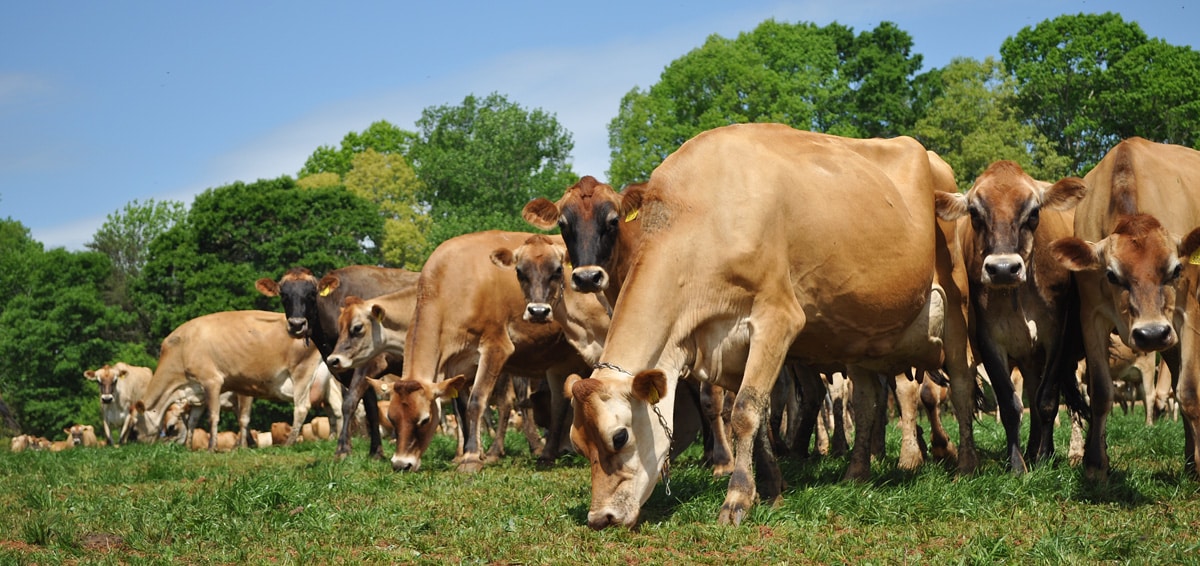
The milking string at Piedmont Jersey Farm is 220 cows. The herd is enrolled on REAP and has a lactation average (m.e.) of 22,399 lbs. milk, 950 lbs. fat and 768 lbs. protein. The herd average for final score is 84.2%, with 36 Excellent and 184 Very Good cows. The Lutzes have bred and developed nearly 300 Excellent cows, including three 93-point matriarchs in the herd today.
The Lutzes grow all forages for the cows on the farm’s 300 acres and an additional 100 acres of rented land. Cows graze on perennial rye grass from February through June and then on alfalfa until November. Through the winter, their forage consists primarily of a variety of cereal rye grass that is well suited to grazing. Forages also include sudex (sorghum-sudangrass hybrids) and crabgrass.
Cows are milked in a double-eight herringbone parlor with automatic takeoffs and an indexing rail and fed supplemental grain and forages in a drive through barn. Calves are raised in hutches.
Lessons Learned
With four years’ worth of research under their belt, the Lutzes were comfortable planning for an official business launch in the spring of 2021. Though they expected curveballs, nothing could have prepared them for the granddaddy of them all: COVID-19.
“We had two small grocery stores and three farm stores lined up and then everything fell apart,” recalled Corey. Every step of the process slowed to a crawl, from supply to labor. The creamery’s six-month delay to product sales was swift by pandemic standards.
In the past 10 months, we have answered the question “do we have a viable product” in spades, summed Olivia. We now need to resolve “how do we grow profitably” and keep our sanity.
Growing profitably looks very different today than it did pre-pandemic. Like most businesses, the creamery’s biggest obstacles are finding and keeping qualified labor and overcoming challenges associated with trucker shortages.
Among Olivia’s tips to maintain a positive outlook are regular mental health breaks and small victory celebrations. “Mental health is often overlooked in the agriculture industry. We need these breaks to reset and reinvigorate. I work out at the gym three days a week. James plays with his daughter, Larkin.”
In the same vein of thinking, Olivia urged, “Get the right people in the right place as quickly as possible so you aren’t running ragged. If you are not a marketer and no one on your team is, find one. If you are continually working in your business (learning how to do tasks), you will have no time to work on your business (figuring out how to make it grow).”
The Lutzes are also learning to market their product to wholesalers and consumers.
“Getting your foot in the door is just the first step,” commented Corey. “Product placement is an equally huge second step. If our milk is placed in the health food section alongside almond, coconut and soy milk, for example, it is overlooked because customers shop here for dairy alternatives, not Jersey milk. However, when it is positioned with conventional milk, it sells well.”
Getting store managers hooked on our product has been key, summed Corey. “After we invited 30 managers from Food Lion to the farm and showed them what we do and how we do it, they better positioned our product because they believed in it. They discovered we are not making a commodity product that is comingled with every other milk on the truck. They learned how plate and cell counts impact shelf life and why pastured cows make milk that tastes better. After all, they want a happy customer too.”
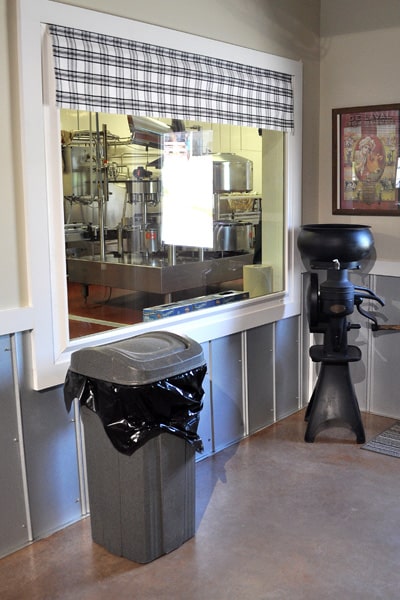
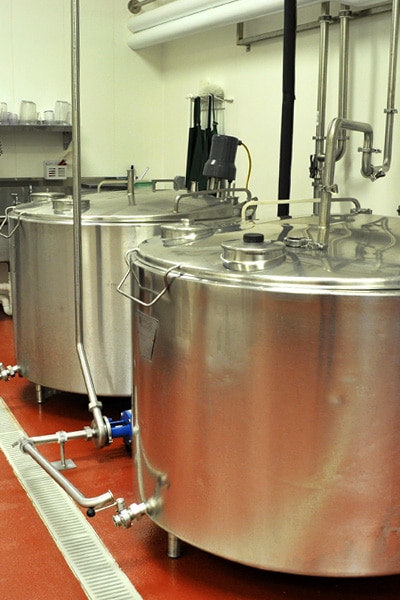
Selling direct to customers is equally important for Riverbend Creamery as the family plans to develop agritourism as another revenue stream. Demand is strong, but largely untapped due to labor shortages.
“I am always surprised how people respond to the cows,” noted Corey. “On a nice day, there might be 30 people lined up outside the fence watching them graze. On weekends, the line for ice cream usually extends out the creamery and up the hill.”
“People love the product, they love the cows,” summed Olivia. “Our job now is to get out samples, tell our story, and show people how to find us.”
Remember Your Why
When the days get long and the road rocky, it helps to remember your why.
The “why” of Riverbend Creamery is a continuation of the farm and cattle at Piedmont Jersey Farm. But to ensure this result even in the worst-case scenario—business failure—the Lutzes have enrolled 85% of the farm in a conservation easement. The land can never be used for development, ensuring it will be preserved as farmland or protected habitat for generations to come.
“Yes, we are making ice cream and bottling milk,” remarked James. “But this is just a means to an end—preservation of the land here at Piedmont Jersey Farm and the cows grazing its pastures. That is the reason I work with all my heart to make Riverbend Creamery successful, not just for me, but for future generations of my family.”
